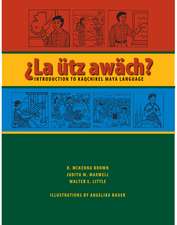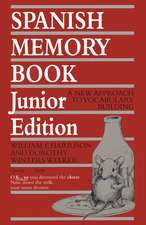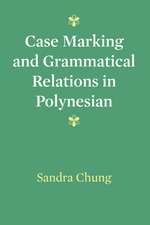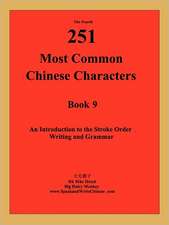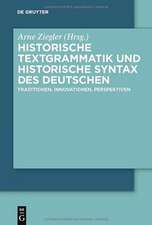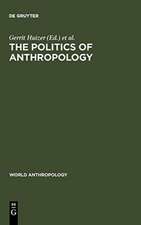The Language of the Inka since the European Invasion: Texas Linguistics Series
Autor Bruce Mannheimen Limba Engleză Paperback – feb 1991
Mannheim first discusses changes in the social setting of language use in the Andes from the time of the first European contact in the sixteenth century until today. He reveals that the modern linguistic homogeneity of Spanish and Quechua is a product of the Spanish conquest, since multilingualism was the rule in the Inka empire. He identifies the social and political forces that have influenced the kinds of changes the language has undergone. And he provides the first synthetic history of Southern Peruvian Quechua, making it possible at last to place any literary document or written text in a chronological and social context.
Mannheim also studies changes in the formal structure of Quechua. He finds that changes in the sound system were motivated primarily by phonological factors and also that the changes were constrained by a set of morphological and syntactic conditions. This last conclusion is surprising, since most historical linguists assume that sound change is completely independent of other aspects of language. Thus, The Language of the Inka since the European Invasion makes an empirical contribution to a general theory of linguistic change.
Written in an engaging style that is accessible to the nonlinguist, this book will have a special appeal to readers interested in the history and anthropology of native South America.
Din seria Texas Linguistics Series
-
 Preț: 430.34 lei
Preț: 430.34 lei - 23%
 Preț: 467.38 lei
Preț: 467.38 lei -
 Preț: 350.64 lei
Preț: 350.64 lei -
 Preț: 160.48 lei
Preț: 160.48 lei -
 Preț: 277.16 lei
Preț: 277.16 lei -
 Preț: 166.47 lei
Preț: 166.47 lei
Preț: 264.68 lei
Nou
Puncte Express: 397
Preț estimativ în valută:
50.65€ • 52.88$ • 41.92£
50.65€ • 52.88$ • 41.92£
Carte tipărită la comandă
Livrare economică 04-18 aprilie
Preluare comenzi: 021 569.72.76
Specificații
ISBN-13: 9780292729261
ISBN-10: 029272926X
Pagini: 346
Ilustrații: 34 figs, 3 maps, 12 tables
Dimensiuni: 152 x 229 x 24 mm
Greutate: 0.51 kg
Ediția:New.
Editura: University of Texas Press
Colecția University of Texas Press
Seria Texas Linguistics Series
ISBN-10: 029272926X
Pagini: 346
Ilustrații: 34 figs, 3 maps, 12 tables
Dimensiuni: 152 x 229 x 24 mm
Greutate: 0.51 kg
Ediția:New.
Editura: University of Texas Press
Colecția University of Texas Press
Seria Texas Linguistics Series
Notă biografică
Bruce Mannheim is Professor of Anthropology at the University of Michigan.
Cuprins
- Foreword by Paul Friedrich
- Acknowledgments
- A Note on Orthography and Citations
- 1. Introduction
- Part I. The Historical and Social Setting
- 2. The Ecology of Language Contact before the European Invasion
- 3. Language and Colonialism
- 4. Linguistic Hegemony and the Two Dimensions of Language Variation
- Part II. Linguistic Change
- 5. Common Southern Peruvian Quechua
- 6. Reading Colonial Texts
- 7. The Sibilants
- 8. The Ejectives and Aspirates
- 9. Syllable-Final Weakenings
- 10. Conditions on Sound Change
- Appendices
- 1. Southern Peruvian Quechua Practical Orthography
- 2. Special Characters and Other Special Symbols
- 3. Abbreviations
- 4. Glossary
- 5. Political Chronology
- Notes
- References Cited
- Index
Recenzii
Mannheim has done a masterful job of interpreting Quechua sound change within a culturally sensitive and sociohistorically realistic frame.
... has all the makings of a classical text.
Descriere
A synthesis of the history of Southern Peruvian Quechua since the Spanish invasion, providing insights into the nature of language change in general, into the social and historical contexts of language change, and into the cultural conditioning of linguis





